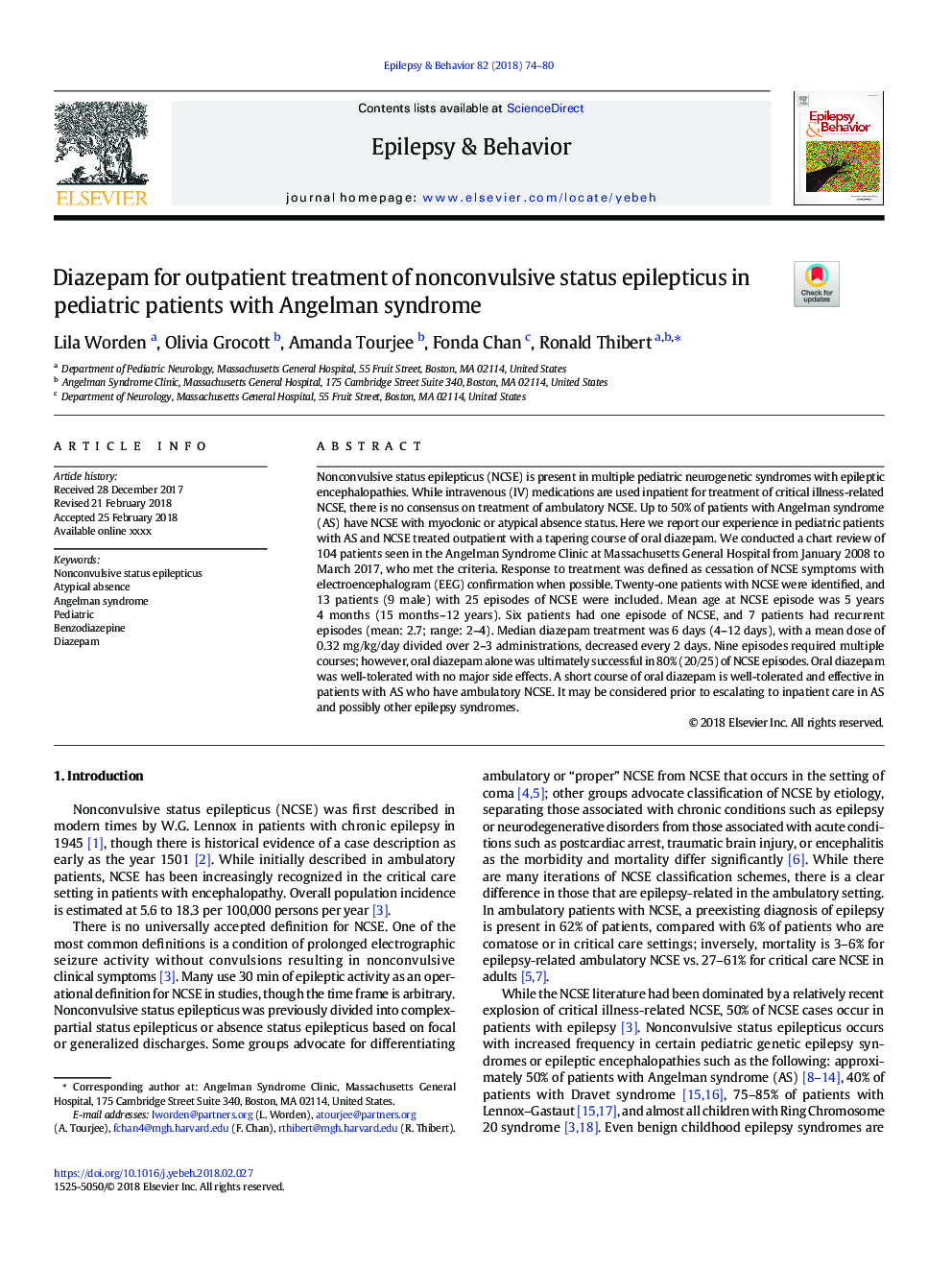| Article ID | Journal | Published Year | Pages | File Type |
|---|---|---|---|---|
| 8683653 | Epilepsy & Behavior | 2018 | 7 Pages |
Abstract
Nonconvulsive status epilepticus (NCSE) is present in multiple pediatric neurogenetic syndromes with epileptic encephalopathies. While intravenous (IV) medications are used inpatient for treatment of critical illness-related NCSE, there is no consensus on treatment of ambulatory NCSE. Up to 50% of patients with Angelman syndrome (AS) have NCSE with myoclonic or atypical absence status. Here we report our experience in pediatric patients with AS and NCSE treated outpatient with a tapering course of oral diazepam. We conducted a chart review of 104 patients seen in the Angelman Syndrome Clinic at Massachusetts General Hospital from January 2008 to March 2017, who met the criteria. Response to treatment was defined as cessation of NCSE symptoms with electroencephalogram (EEG) confirmation when possible. Twenty-one patients with NCSE were identified, and 13 patients (9 male) with 25 episodes of NCSE were included. Mean age at NCSE episode was 5Â years 4Â months (15Â months-12Â years). Six patients had one episode of NCSE, and 7 patients had recurrent episodes (mean: 2.7; range: 2-4). Median diazepam treatment was 6Â days (4-12Â days), with a mean dose of 0.32Â mg/kg/day divided over 2-3 administrations, decreased every 2Â days. Nine episodes required multiple courses; however, oral diazepam alone was ultimately successful in 80% (20/25) of NCSE episodes. Oral diazepam was well-tolerated with no major side effects. A short course of oral diazepam is well-tolerated and effective in patients with AS who have ambulatory NCSE. It may be considered prior to escalating to inpatient care in AS and possibly other epilepsy syndromes.
Related Topics
Life Sciences
Neuroscience
Behavioral Neuroscience
Authors
Lila Worden, Olivia Grocott, Amanda Tourjee, Fonda Chan, Ronald Thibert,
